Every Studio Ghibli movie ranked from worst to best
10. Castle in the Sky, 1986
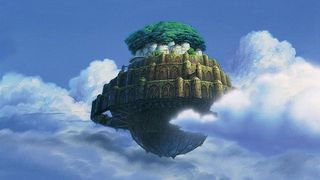
Director: Hayao Miyazaki
Castle in the Sky is the first official Ghibli film, and it's pure adventure. Long ago, the humans built flying cities, but for mysterious reasons, they were destroyed, forcing people to live on the planet's surface. A secret government agent named Muska is attempting to find the last remaining flying castle of Laputa and harness its secrets for his own selfish ends. To do so, he has abducted a girl named Sheeta, whose mysterious amulet may hold the key to finding the lost city. She escapes, and ends up crossing paths with a boy named Pazu, and the two work together to evade Muska and his government goons. Castle in the Sky isn't terribly deep, but it's a fun, beautifully realized romp of a film, evocative of Miyazaki's early work on The Castle of Cagliostro.
9. Nausicaa of the Valley of the Wind, 1984
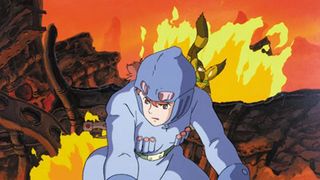
Director: Hayao Miyazaki
In many ways, Nausicaa of the Valley of the Wind is the proto-Ghibli film. Technically Castle in the Sky is Studio Ghibli's first movie, as Nausicaa was made before the studio's founding, but it's largely considered the first as it was made by many of its key members. Plus, it has "A Studio Ghibli Film" stamped all over it on the DVD, so we're counting it.
Many of the animation house's themes and character archetypes show their beginnings here. Set in post-apocalyptic world ruined by a thick, poisonous miasma (probably a depiction our own world, thousands of years in the future), two warring kingdoms vie for a biological weapon, one of which is trying to use it to destroy a race of enormous insect-like creatures. Nausicaa finds herself caught in the middle, attempting to prevent either side from causing further irreparable damage to the environment. It's a great bit of sci-fi, but its environmental message elevates it beyond mere genre fiction, and it's a message Studio Ghibli will revisit time and again. It's also one of the most influential animated films ever made, serving as the inspiration to everything from Final Fantasy to The Force Awakens.
8. Princess Mononoke, 1997
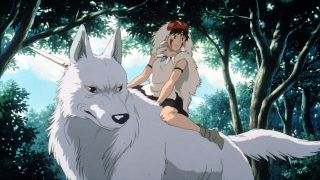
Director: Hayao Miyazaki
Princess Mononoke is very stone-faced – a serious chanbara melodrama where gods and demons wage a never-ending war while humans end up caught in the middle. Princess Mononoke succeeds where Tales from Earthsea fails, though, due to its throughline of humanity, charming and likeable characters, and its unwillingness to position any one side as purely good or evil. The human village of Steamtown is clearing out the forest, but their queen merely wants the best for her subjects; the wolf princess seeks revenge but is willing to pay any price to attain it. Evocative, moving, and thought-provoking, Princess Mononoke is a samurai film unlike any other.
7. Grave of the Fireflies, 1988
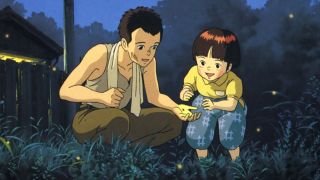
Director: Isao Takahata
Not too many war movies position the losing side as the protagonist, but Grave of the Fireflies isn't like many war movies. Following two young siblings during a series of Allied attacks on mainland Japan during World War 2, Grave of the Fireflies explores their lives as they deal with the aftermath of the death of their mother – first as they live with their stern relatives and then on their own after they run away from home. It's a war film without a scene of direct combat, instead showing the cost the war took from its harried civilian population. Bring tissues, because it will turn you into an emotional wreck.
6. The Wind Rises, 2013
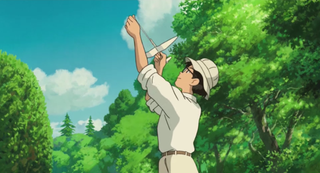
Director: Hayao Miyazaki
Hayao Miyazaki's final film before his retirement is a melancholy look at a man who wanted nothing more than to fly planes, but his poor vision prevented him from earning his pilot's license. Instead, he funneled his passion for flight into his work as a master aerodynamic engineer, but was only ever able to find a way to do so as a cog in a vast war machine. Is it possible to be proud of your work when it's the cause of so much destruction; to find pride in a country at war for all the wrong reasons? While not necessarily auto-biographical, you can feel Miyazaki's voice shining through every frame of this film, simultaneous twangs of hope and regret hanging over his swan song like a pall.
5. My Neighbor Totoro, 1988
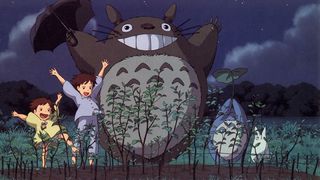
Director: Hayao Miyazaki
My Neighbor Totoro originally debuted as the second half of a double feature alongside Grave of the Fireflies, and while that film is an account of the horrors of war, Totoro is about finding hope in the rebuilding that comes afterward. It's a film of boundless imagination, of magical dust bunnies that hide inside an old house and take its young inhabitants on adventure while the rest of the country around them tries to figure out where to go from here. Kids will appreciate the cute cat-bunny creatures; adults will marvel at the deft storytelling on display from one of animation foremost creators.
4. The Tale of Princess Kaguya, 2013
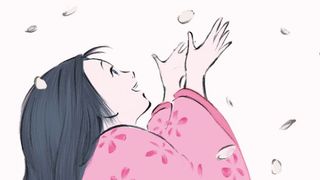
Director: Isao Takahata
The Tale of Princess Kaguya is Isao Takahata's masterpiece, the culmination of his years of experimenting with the animated feature format. Utilizing a minimalist watercolor style, it offers a retelling of the Japanese folk story The Tale of the Bamboo Cutter, using it as a framework to explore the fleeting nature of wealth, status, and mortality. It unfolds like a storybook, showing a unique glimpse into the life and role of women in Feudal Japan, while offering some of the most impressive visual sequences the studio has ever produced.
Sign up to the SFX Newsletter
Get sneak previews, exclusive competitions and details of special events each month!
3. Porco Rosso, 1992
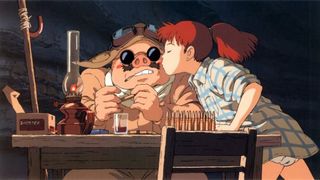
Director: Hayao Miyazaki
Porco Rosso is unadulterated popcorn thrills; a tale of an ace World War 1 pilot turned into a pig who sells his expertise to the highest bidder. Studio Ghibli's films - Miyazaki's in particular - all share a passion for flight, but Porco Rosso absolutely soars, depicting lovingly recreated period-era planes and realistic maneuvers in a magical realist slice of historical fiction. That it seamlessly integrates its anti-war and feminist messages with a breezy plot ripped right out of the Golden Age of Hollywood without being heavy-handed seems impossible - well, impossible for pretty much any filmmaker but Miyazaki.
2. Spirited Away, 2001
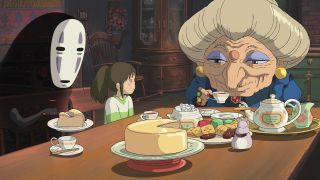
Director: Hayao Miyazaki
The word masterpiece is often trotted out for Spirited Away, but there's really no other way to describe it. It's a classic Alice in Wonderland-esque story – girl wanders too far from her family and ends up stuck in a mystical world much like her own, only topsy-turvy – but Spirited Away takes that concept and completely makes it its own. Embracing all of the trappings of Japanese folklore and mythology, Spirited Away sends Chihiro into an alternate version of Japan, trapping her in bathhouse for the spirits where she works for the curmudgeon, ridiculously-proportioned Yubaba. Between No-Face's arrival to Chihiro's relationship with the enigmatic Haku, any one of its memorable moments could make for its own film. The fact that Spirited Away so deftly moves between them all without skipping a beat is a testament to Miyazaki's craft.
1. Whisper of the Heart, 1995
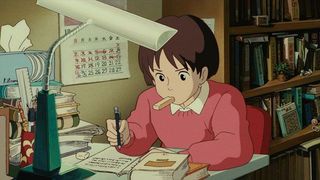
Director: Yoshifumi Kondo
Whisper of the Heart is perhaps a strange film to top a list of so many individually lovely and imaginative films, but for me, it's the only one that makes sense. It's a relatively simple love story on the surface. Shizuku Tsukishima, a young girl preparing for her high school entrance exam (an event of great importance in Japan because it sets you on the path toward your eventual career) reads fairytales and rewrites the lyrics to John Denver's Take Me Home, Country Road with her friends. She ends up meeting Seiji Amasawa, a young classmate who annoys her at first, but they begin to grow closer as they get to know one another. She learns that he's an apprentice violin maker whose talents are leading him toward a bright future out of the country. Inspired by his own success, Shizuku looks inward, worried that she'll never find the thing she's good at – and so she tries her hand at writing her own fantasy, inspired by an antique cat statue. As grounded as it is fantastical, Whisper of the Heart is a sweet tale of young love, of discovering your true passion, and of finding the courage to forge your own path.
The saddest part about it is that Whisper of the Heart was Yoshifumi Kondo's first and only directed film with Studio Ghibli before his untimely passing. A long-time animator for Studio Ghibli, he showed bright promise within the studio. He was eventually slated to succeed Miyazaki and Takahata after their eventual retirement, but unfortunately died of an aneurysm in 1998. What direction would the studio have taken had he not died? It's perhaps best not to wonder what could have been, and instead enjoy what we have. I can't think of a more fitting Studio Ghibli message than that.
Most Popular




